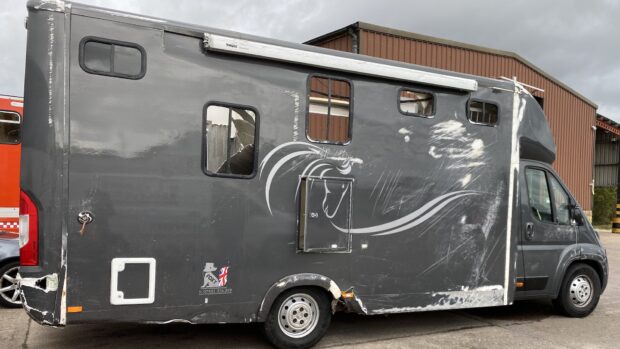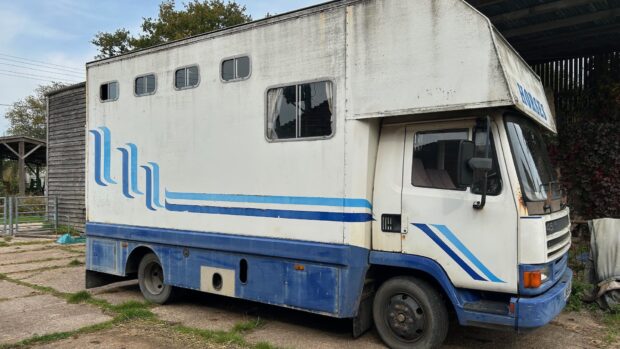Dorset horsebox firm Galloper has introduced a new lightweight, 7.5tonne-box that it claims will easily carry three horses and not exceed the chassis weight.
Made of the same material as a “plastic” Coca-Cola bottle, the Galloper horseboxes have twice the payload (weight-carrying capacity) of the average lorry.
Eventer Kitty King got the first one last week, costing £50,000.
“We’re acutely aware of issues regarding weight,” said Galloper’s Michael Drewett.
Horseboxes weighing more than the specified chassis weight limit are at risk of being caught in Vehicle and Operator Services Agency (VOSA) checks.
Horseboxes are usually made of fibreglass-coated plywood, but by using heat-welded polypropylene panels Galloper increases a 7.5tonne vehicle’s payload to 2.8tonnes (four horses) without losing strength.
Galloper claims it can fit in three horses, two people and kit within the weight limit.
John Barrett from the Vehicle Builders and Repairers Association said: “Galloper is fairly unique in the materials it’s using – they’re extremely strong and light.”
The company introduced a 3.5tonne lightweight box 18 months ago. Steve Mills, who runs transport firm Horses In Motion, has ordered his third.
“I bought a box a year ago and it has carried 700 horses. A 17hh horse went mad in it, but both the horse and the box emerged unscathed,” he said.
But horsebox manufacturer George Smith is sceptical.
“People have to be realistic. If you want to carry three horses and have living space, you’ll need more than a 7.5tonne lorry and have to get an HGV licence,” he said.
And Oakley introduced diesel-fuelled heating last year in place of heavy gas cylinders to try to reduce weight.
But VOSA will be watching. “We have not specifically increased our checks, but horseboxes are subject to routine checks as with other vehicles,” said a spokesman.
This article was first published in Horse & Hound (24 June, ’10)



